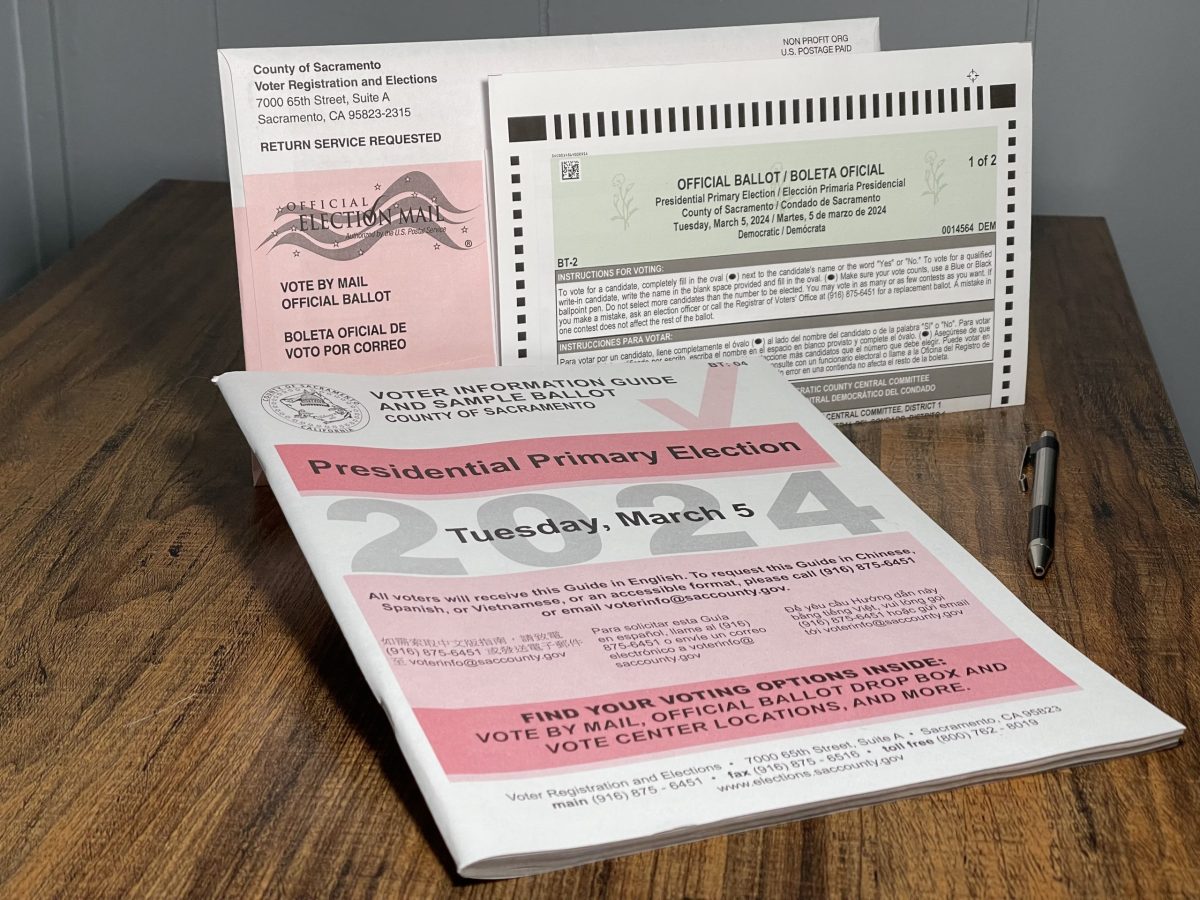Approximately 12.2% of currently registered voters are under the age of 25, according to the California Secretary of State’s website, which means young voters can have an impact in the primary election this month.
According to the Center for Information and Research on Civic Learning and Engagement, 22% of registered voters between the ages of 18-29 cast a ballot in 2022. That figure is 8% lower than the 2018 election, a trend in multiple states across the country.
Political Science Professor Elizabeth Huffman said California voters are responsible for the legalization of marijuana, upholding clean air laws and most recently amending the constitution.
“The California constitution now guarantees the right to reproductive freedom, including the right to an abortion and the right to birth control,” Huffman said.
Incumbent President Joe Biden and former President Donald Trump are the current frontrunners for their respective parties for the Presidential Primary Election. Both candidates are likely to lead the race, according to Cal Matters.
Voters will also decide who will replace longtime U.S. Senator Dianne Feinstein, who died in September. Five candidates are in the U.S. senate race, three democratic and two republican.
Immauri Patterson, a 22-year-old business administration major, said he is registered to vote and just wants a fair election.
“I think doing minimal research is still research,” Patterson said. “If you have a hunch to vote for someone based on articles you’ve read, vote anyways because it still counts.”
Huffman said almost all community college students had to pay tuition up until 2017.
“In 2017 Gov. Jerry Brown initiated the California Promise grant,” Huffman said. “Which made the first year free for most students.”
Huffman said the program was later expanded, making community college free for the first two years under Newsom, funded by taxpayers. She said this greatly impacted student’s ability to afford an education.
“These governors were elected by California voters,” Huffman said.
California voters have a bill of rights, outlining the abilities and resources provided to them. Voters have “the right to get help casting your ballot from anyone you choose, except from your employer or union representative,” according to the voter bill of rights.
This means first-time voters can get help from a parent, sibling, friend, neighbor or anyone else they would feel comfortable asking.
Julia Nguyen, an 18-year-old kinesiology major, said she is not registered to vote, but would like to vote on topics such as feminism, women’s rights, anti-racist movements, LGBTQ+ rights and mental health.
“I think voting is important because when you cast your vote, it impacts the community that leader is in,” Nguyen said.
Eighteen-year-old psychology major Delena Billoups said she feels like if you don’t vote, then you don’t have a say in what happens. She said she is not registered to vote, but has been meaning to.
According to the voter bill of rights, if voters have not yet cast their ballot, they have the right to a new ballot if a mistake was made.
Voters will have one state-wide measure on the ballot, Proposition 1, which permits California to borrow $6.4 billion for 10,000 new mental health treatment beds, according to Cal Matters.
Cosumnes River College will be a ballot drop location on election day from 8 a.m. to 6 p.m. near the Center Parkway entrance of campus.
“Still, at the end of the day, you’re not helping yourself by not voting,” Billoups said.

